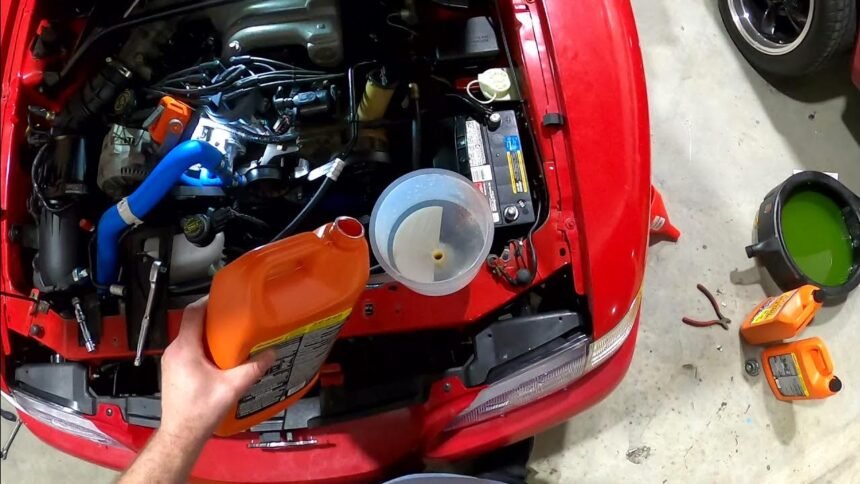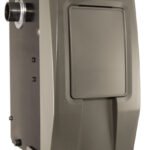1994 Ford Mustang Overheating: Common Causes, Solutions, and Prevention
The 1994 Ford Mustang holds a special place in automotive history, being the first year of the fourth generation of Mustangs, known as the “SN95” model. However, as with many older vehicles, owners of this classic car often encounter specific maintenance issues, and one of the most prevalent is overheating. Engine overheating in a 1994 Ford Mustang can be frustrating and, if left unchecked, lead to serious damage. This article explores the common causes, solutions, and prevention methods related to 1994 Ford Mustang overheating.
Common Causes of 1994 Ford Mustang Overheating
Overheating in any vehicle is a sign that something within the cooling system is malfunctioning. For the 1994 Ford Mustang, there are several potential causes. Understanding these causes can help owners diagnose and fix the problem before it leads to more expensive repairs.
1. Radiator Issues
One of the most common reasons for 1994 Ford Mustang overheating is a malfunctioning radiator. The radiator’s job is to keep the engine cool by allowing coolant to circulate and dissipate heat. Over time, the radiator can become clogged with debris or rust, preventing it from functioning properly. In some cases, a radiator leak may also cause a loss of coolant, which can lead to overheating.
2. Failing Thermostat
The thermostat controls the flow of coolant between the engine and radiator, ensuring the engine remains at an optimal temperature. If the thermostat becomes stuck in a closed position, it can block the flow of coolant, leading to 1994 Ford Mustang overheating. Thermostats are typically inexpensive and easy to replace, but if ignored, a faulty thermostat can cause significant damage.
3. Water Pump Failure
The water pump is crucial for circulating coolant through the engine. A failing water pump can lead to insufficient coolant flow, causing the engine to overheat. In the 1994 Ford Mustang, water pump issues often present themselves through coolant leaks or a grinding noise coming from the pump. If left unchecked, water pump failure can lead to complete engine failure, which is far more costly to repair.
4. Faulty Cooling Fan
The cooling fan plays an important role in keeping the engine temperature under control, especially when the car is idling or moving slowly. If the fan fails to activate or doesn’t operate at full capacity, the engine may overheat. For a 1994 Ford Mustang, cooling fan issues may be due to a faulty fan motor, blown fuse, or wiring problems.
5. Low Coolant Levels
Low coolant levels are another common cause of 1994 Ford Mustang overheating. The coolant acts as a heat transfer fluid, and when levels are too low, the engine cannot dissipate heat properly. Leaks in the radiator, hoses, or even the heater core can cause coolant levels to drop. Owners should regularly check their coolant levels and top them off as needed to avoid overheating.
Symptoms of Overheating in a 1994 Ford Mustang
Recognizing the signs of an overheating engine can help prevent serious damage. The following are some symptoms that may indicate your 1994 Ford Mustang is experiencing overheating:
- High Temperature Gauge: If the temperature gauge on your dashboard is reading higher than normal, it’s a clear sign that the engine is overheating.
- Coolant Leaks: Coolant pooling under your car can indicate a leak in the radiator, water pump, or hoses.
- Steam from the Hood: If you notice steam coming from under the hood, it’s an urgent sign that your engine is overheating and needs immediate attention.
- Engine Misfire: Overheating can cause the engine to misfire or run erratically, which may lead to further damage.
- Burning Smell: The smell of burning coolant or oil is a sign that your engine is running too hot.
How to Fix Overheating Issues in a 1994 Ford Mustang
Once you’ve identified the cause of 1994 Ford Mustang overheating, addressing the problem quickly is essential to avoid further damage. Below are some potential fixes depending on the root cause:
1. Clean or Replace the Radiator
If the radiator is clogged or damaged, cleaning it out or replacing it may solve the overheating issue. A new radiator for a 1994 Ford Mustang typically costs between $150 and $300, depending on the model and where you purchase it.
2. Replace the Thermostat
Thermostats are inexpensive and usually cost between $20 and $50. Replacing the thermostat can restore the proper flow of coolant and prevent overheating. Many car owners with basic mechanical skills can replace a thermostat themselves, but it’s always best to consult a professional if you’re unsure.
3. Water Pump Replacement
Replacing a water pump is a more complicated and expensive repair. Water pumps can cost anywhere between $100 and $500, depending on whether you perform the repair yourself or hire a mechanic. However, replacing the water pump promptly will prevent further engine damage and avoid a much costlier repair down the line.
4. Fixing the Cooling Fan
A faulty cooling fan may require a replacement motor, fuse, or relay. Costs vary depending on the issue but typically range from $50 to $200. Ensuring that the fan operates correctly will help maintain a consistent engine temperature, especially in stop-and-go traffic.
5. Check Coolant Levels and Repair Leaks
Topping off coolant levels is a simple fix, but if there’s an underlying leak, it must be repaired. Replacing hoses or sealing a leak in the radiator will help maintain coolant levels and prevent further overheating.
Preventative Maintenance to Avoid Overheating
Preventing 1994 Ford Mustang overheating issues comes down to regular maintenance and inspections. Here are a few ways to keep your Mustang running smoothly:
- Regular Coolant Flushes: Flushing the coolant system every two years helps remove any buildup that could clog the radiator or hoses.
- Inspect the Radiator and Hoses: Periodically check the radiator and hoses for signs of wear or leaks. Replacing worn parts before they fail can prevent overheating issues.
- Monitor Coolant Levels: Regularly check your coolant levels, especially before long drives, and top them off as needed.
Performance Stats and Common Overheating Issues in Classic Mustangs
According to a report from Mustang Monthly, overheating issues in 1994 Ford Mustangs and other classic models often stem from aging cooling systems. The lifespan of a thermostat is typically between 50,000 to 100,000 miles, while radiators and water pumps can last up to 150,000 miles with proper maintenance. However, once a car reaches the 30-year mark, as with the 1994 Mustang, these components are likely nearing the end of their functional life.
A survey conducted by CarGurus indicates that approximately 15% of 1994 Mustang owners experience overheating issues, particularly during summer months or in high-traffic areas. Regular maintenance, such as replacing the radiator or water pump, significantly reduces the likelihood of overheating.
Conclusion
The 1994 Ford Mustang is a classic vehicle beloved by enthusiasts, but as with any older car, it requires careful maintenance to avoid issues such as overheating. From radiator problems to faulty water pumps, several factors can contribute to an overheating engine. Regular maintenance and quick attention to potential warning signs can prevent costly repairs and keep your Mustang running smoothly for years to come.
Have you experienced overheating issues with your 1994 Ford Mustang? What steps have you taken to keep your engine cool and prevent further damage?








